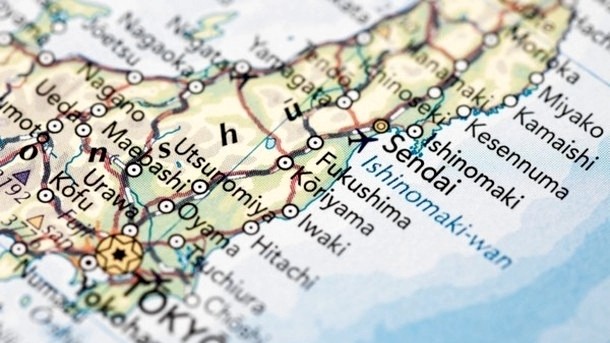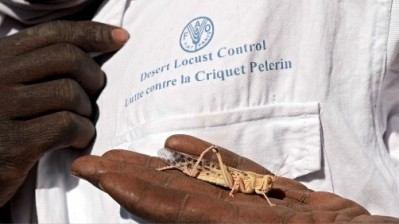Far East digest
Hi-tech farming: NEC's use of data analysis to grow farm yields

The technology creates virtual fields based on weather, soil and vegetation data obtained from sensors, satellites and drones. It also analyses data from farming activity, such as irrigation and fertiliser use.
The solution then creates growth simulations for these virtual fields to provide customised insights that predict factors including future yields and appropriate harvesting times.
By calculating the best use of water, fertiliser and agrochemicals for particular crops and conditions, NEC hopes its technology will help increase yields and streamline the harvesting process.
While farms traditionally modified their production over years, “this new solution achieves scientific modelling based on the growth level of crops and environmental conditions, without requiring a long-term accumulation of data,” NEC said in a statement.
“This is accomplished through co-operation with leading companies and research institutes with a track record in the agriculture ICT domain, as well as NEC's proprietary big data analysis technology.
“This makes it possible to carry out highly accurate simulations for new areas and crops at an early stage, achieving sustainable agriculture that responds flexibly to changing conditions.”
"In this way, NEC aims to help achieve the reforms that will satisfy the growing world demand for food, ensure equitable distribution and expand the availability of safe and secure food environments for all," said Osamu Fujikawa, head of NEC’s corporate business development.
NEC is conducting tests on the technology alongside international food manufacturing and processing companies before it becomes available commercially.
It initially began working with Kagome Co., a Japanese manufacturer and distributor of juices and tomato-based foods, to develop cultivation technology for processing tomatoes at a farm in Portugal belonging to a Kagome subsidiary.
“In order to respond to the increase in demand for tomatoes due to rising global populations, Kagome is implementing initiatives to increase the unit yield (yield per area) in existing production regions,” said Takeshi Saeki, chief financial officer of Kagome’s Global Tomato Company.
So far, the technology has managed to visualise the water saturation and nitrogen stress levels of specific sections of cultivated land while analysing of the causes of yield differences between plots.
It has also succeeded in developing optimised cultivation methods and predicting the appropriate times for harvesting and maximising yield as much as one month prior to harvesting, NEC claims. Following the success of early testing, the company has recently expanded its trials, including work at an Australian subsidiary of Kagome.
More stories from the Far East...
Korean child obesity rates buck first-world trend
Almost twice as many Korean boys are obese compared to girls, according to recent OECD data that also found little difference in the mean obesity rate between the sexes across its member countries.
In Korea, 26.4% of boys aged 5-17 were obese in 2013, a study by OECD, a club of rich nations, found, contrasting with slightly over 14% of Korean girls.
In comparison, the average obesity rate for children across the OECD members showed little difference between children by gender, with only a 2.2% point gap in the rate.
On average, 24.3% of boys and 22.1% of girls were obese across the 33 members of the organisation.
Korean experts have put the difference down to social pressure in the country for girls to conform to idealised body standards—a trend that is considered more widespread for Koreans than other nationalities.
Docomo partners McDonald’s Japan in joint loyalty scheme
McDonald’s Japan has signed a deal with NTT Docomo, the mobile services company, to offer discounts and other benefits to more than 54m customers to stimulate reciprocal business between the high street majors.
Between December and April, McDonald’s customers who pay via Docomo’s iD mobile payment platform at most of the fast-food chain’s 3,000 locations will receive a percentage discounts on their purchases when settling their monthly bill.
They will also be able to accumulate and redeem loyalty points at some 100 McDonald’s stores in Tokyo.
The companies expect to announce other reciprocal customer benefits to be launched after the initial period, including the distribution of d point cards at McDonald’s restaurants and Docomo shops.















